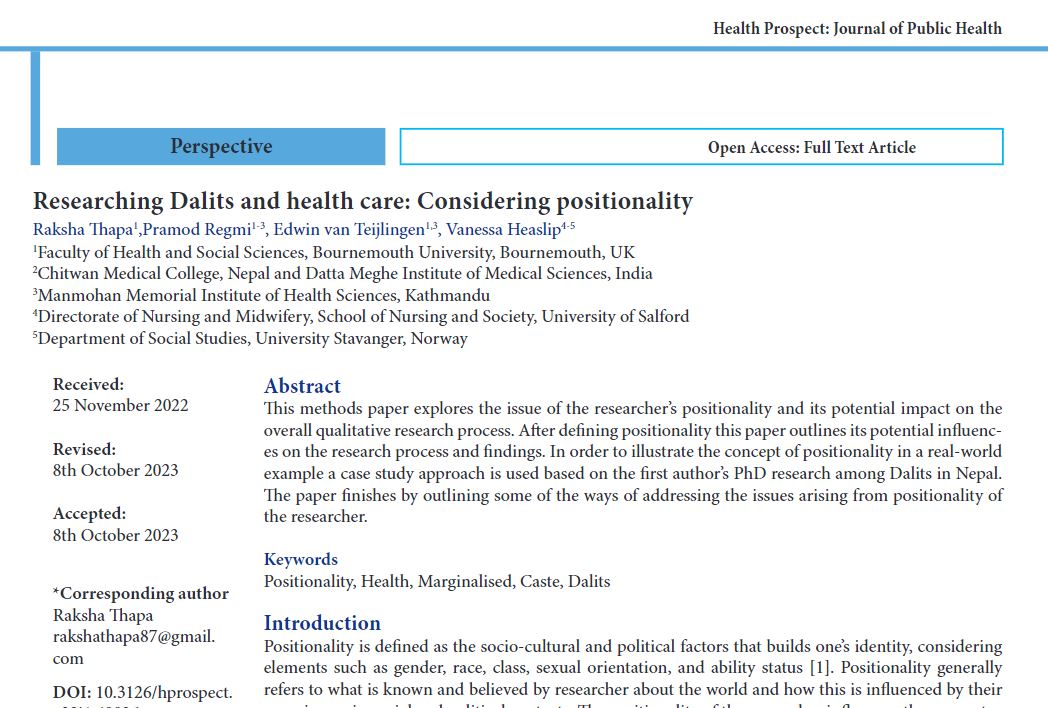
Today the journal Health Prospect published Raksha Thapa’s paper ‘Researching Dalits and health care: Considering positionality’ [1]. This methodological paper is based on Dr. Raksha Thapa’s recently completed BU project on caste-based inequity in health care utilization in Nepal, particularly focusing on people at the bottom of the caste hierarchy, commonly known as Dalit communities. Her PhD study was supervised by Dr. Pramod Regmi, Principal Academic in the Department of Nursing Sciences, Prof. Vanessa Heaslip Professor of Nursing and Healthcare Equity at the University of Salford and Prof. Edwin van Teijlingen in the Centre for Midwifery & Women’s Health. This is the third paper from her PhD work; the first one was published in the Journal of B.P. Koirala Institute of Health Sciences [2] and the second one in the Asia Pacific Journal of Public Health [3].
Congratulations!
Prof. Edwin van Teijlingen & Dr. Pramod Regmi
FHSS
References:
- Thapa, R., Regmi, P., van Teijlingen, E., Heaslip, V. (2023) Researching Dalits and health care: Considering positionality, Health Prospect 21(1): 6-8.
- Thapa, R., van Teijlingen, E., Regmi, P., Heaslip, V. (2018) Uptake of Health Services by People from the Dalit Community, Journal of B.P. Koirala Institute of Health Sciences 1(2): 1-6.
- Thapa, R., van Teijlingen, E., Regmi, P., Heaslip, V. (2021) Caste Exclusion and Health Discrimination in South Asia: A Systematic Review, Asia Pacific Journal of Public Health 33(8):828-838.



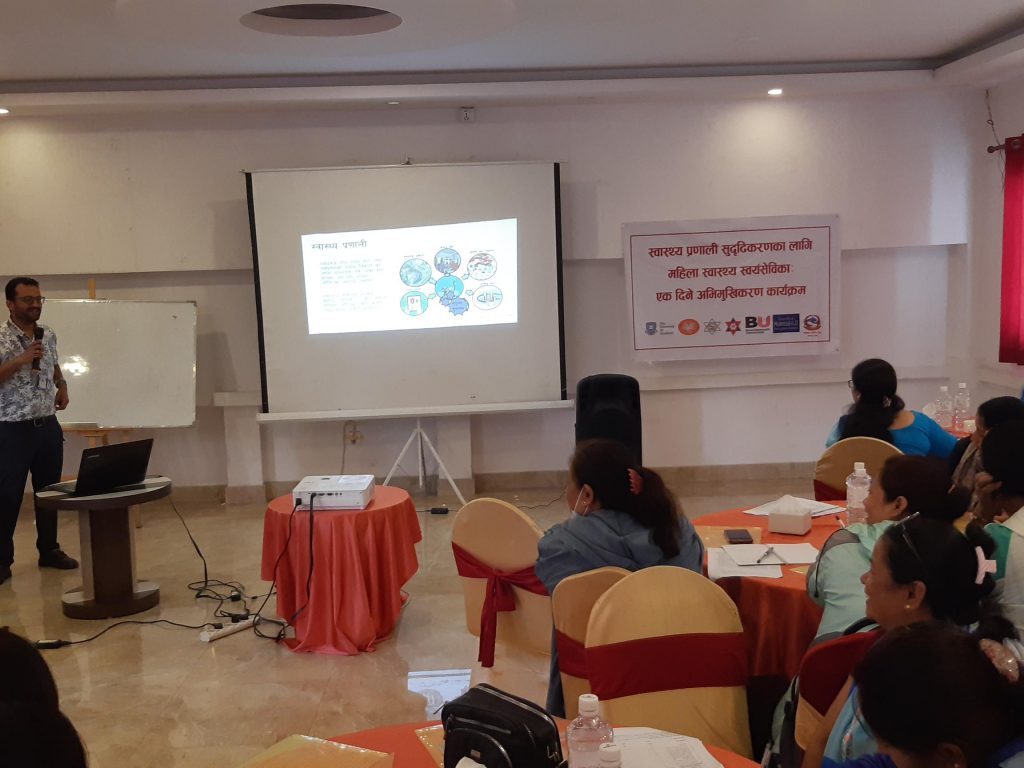
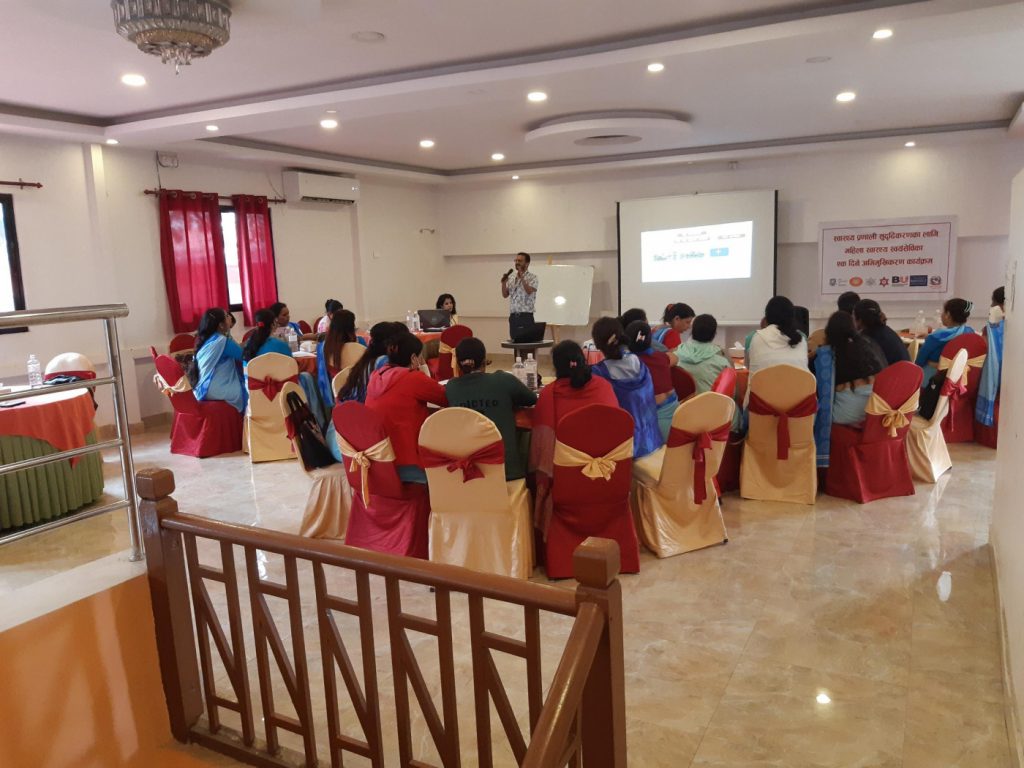


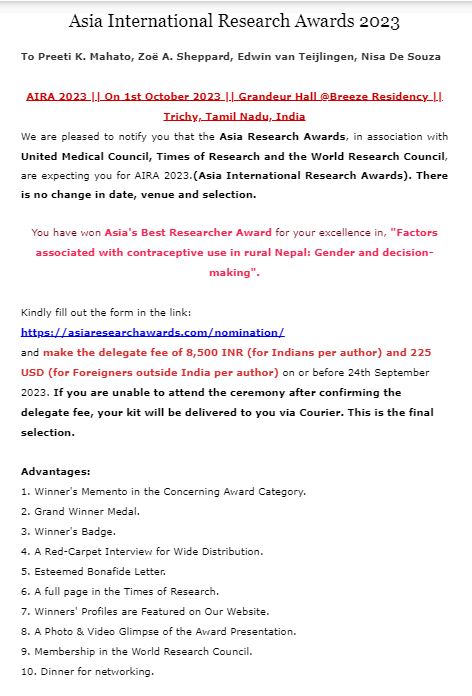




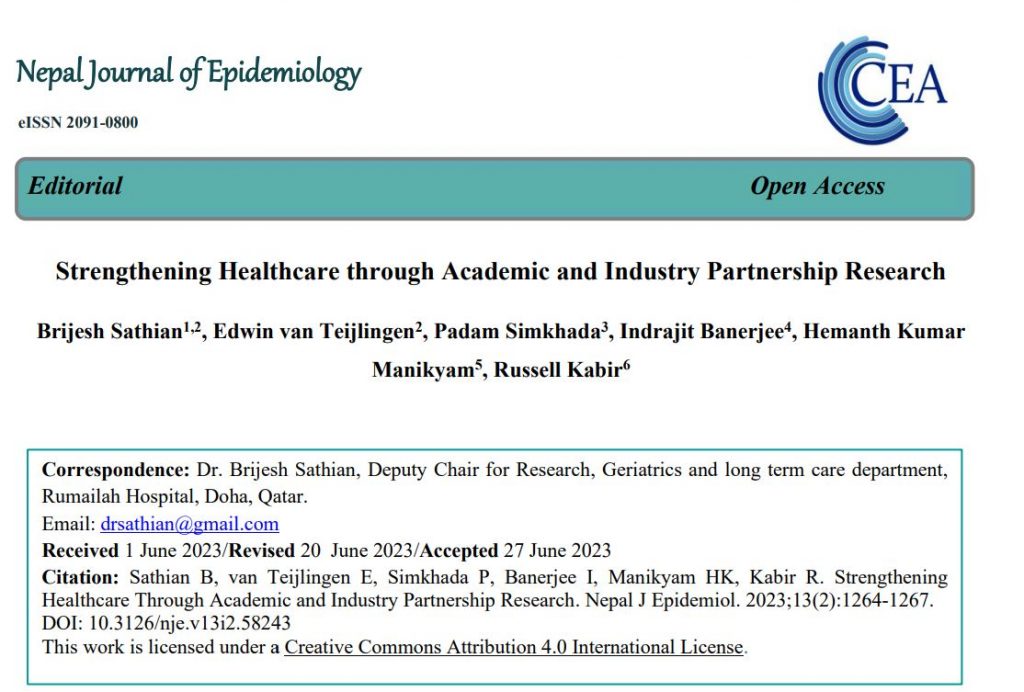
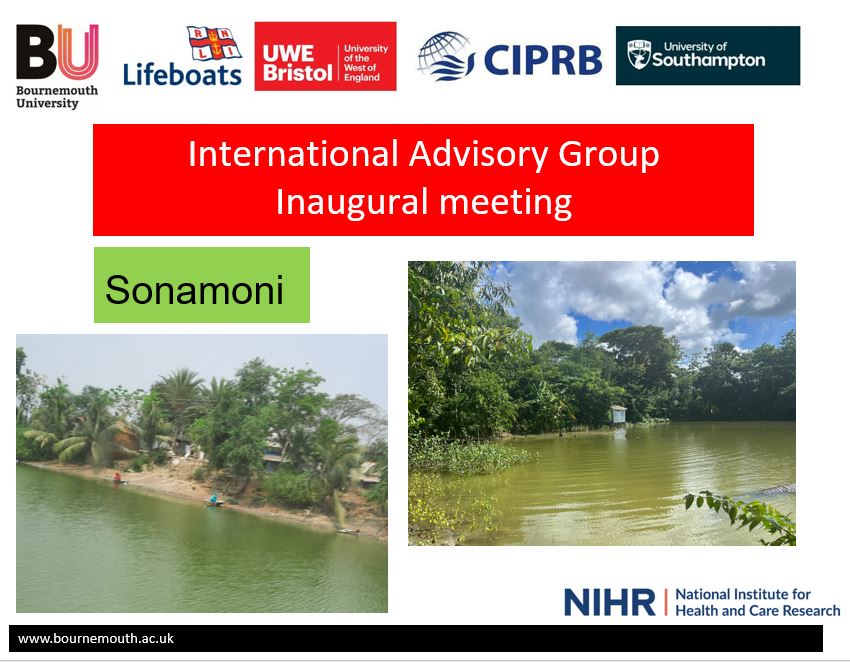

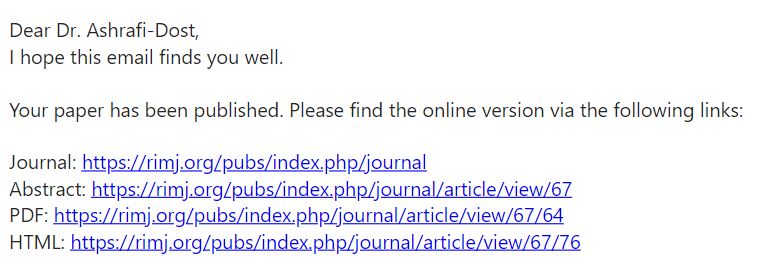
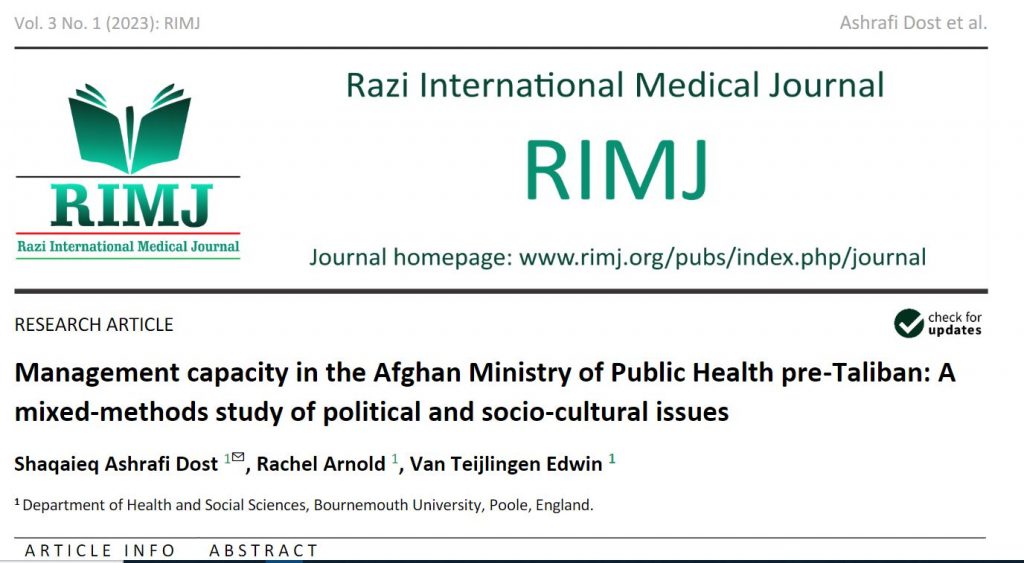
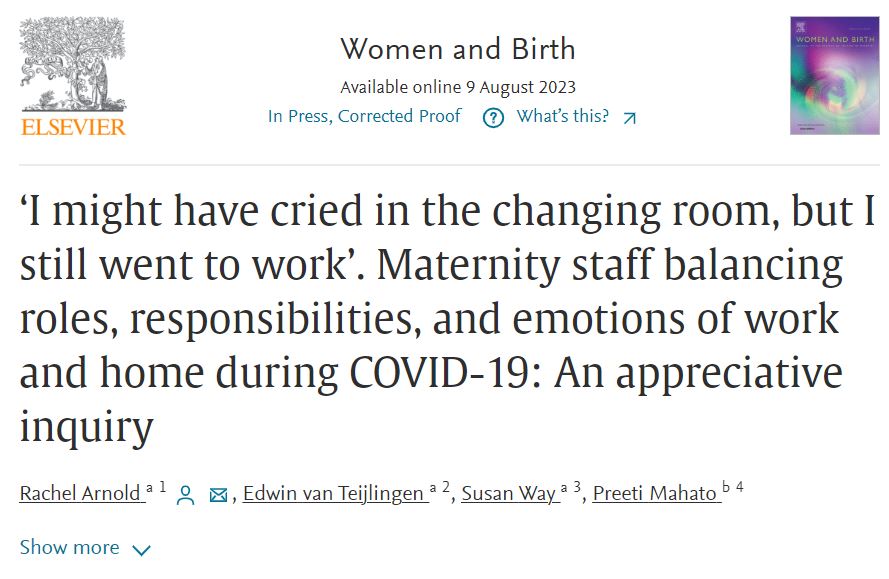



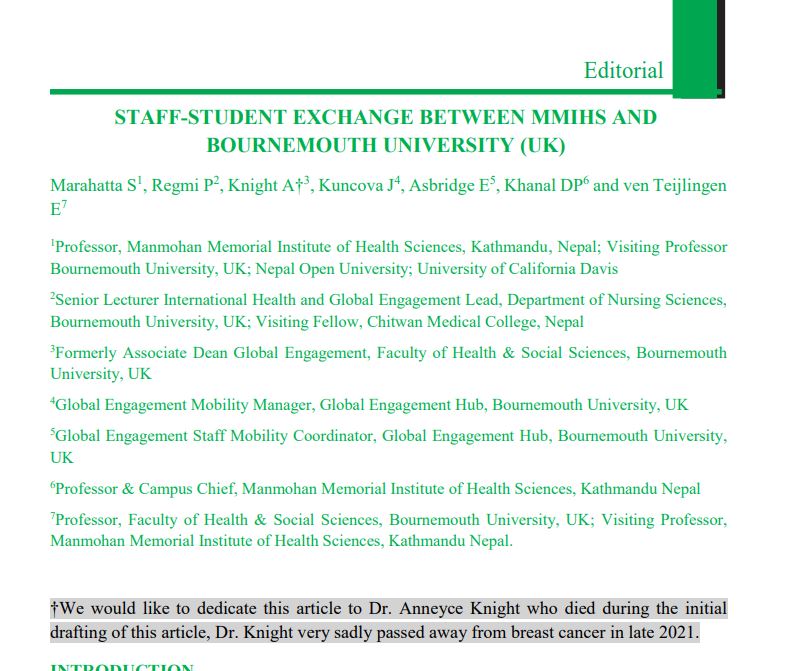




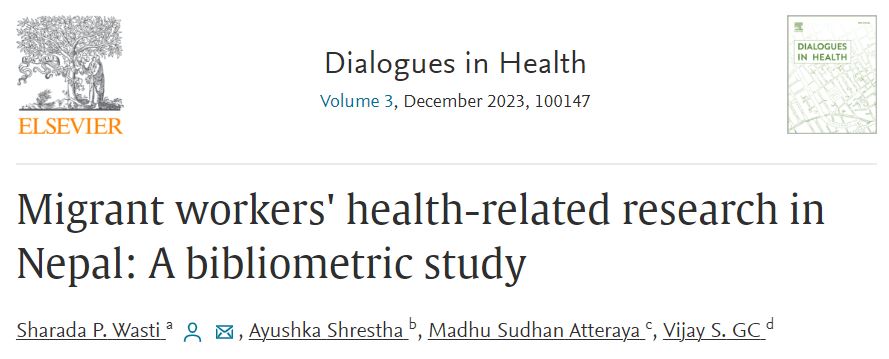











 SPROUT: From Sustainable Research to Sustainable Research Lives
SPROUT: From Sustainable Research to Sustainable Research Lives BRIAN upgrade and new look
BRIAN upgrade and new look Seeing the fruits of your labour in Bangladesh
Seeing the fruits of your labour in Bangladesh Exploring Embodied Research: Body Map Storytelling Workshop & Research Seminar
Exploring Embodied Research: Body Map Storytelling Workshop & Research Seminar Marking a Milestone: The Swash Channel Wreck Book Launch
Marking a Milestone: The Swash Channel Wreck Book Launch ECR Funding Open Call: Research Culture & Community Grant – Application Deadline Friday 12 December
ECR Funding Open Call: Research Culture & Community Grant – Application Deadline Friday 12 December MSCA Postdoctoral Fellowships 2025 Call
MSCA Postdoctoral Fellowships 2025 Call ERC Advanced Grant 2025 Webinar
ERC Advanced Grant 2025 Webinar Update on UKRO services
Update on UKRO services European research project exploring use of ‘virtual twins’ to better manage metabolic associated fatty liver disease
European research project exploring use of ‘virtual twins’ to better manage metabolic associated fatty liver disease